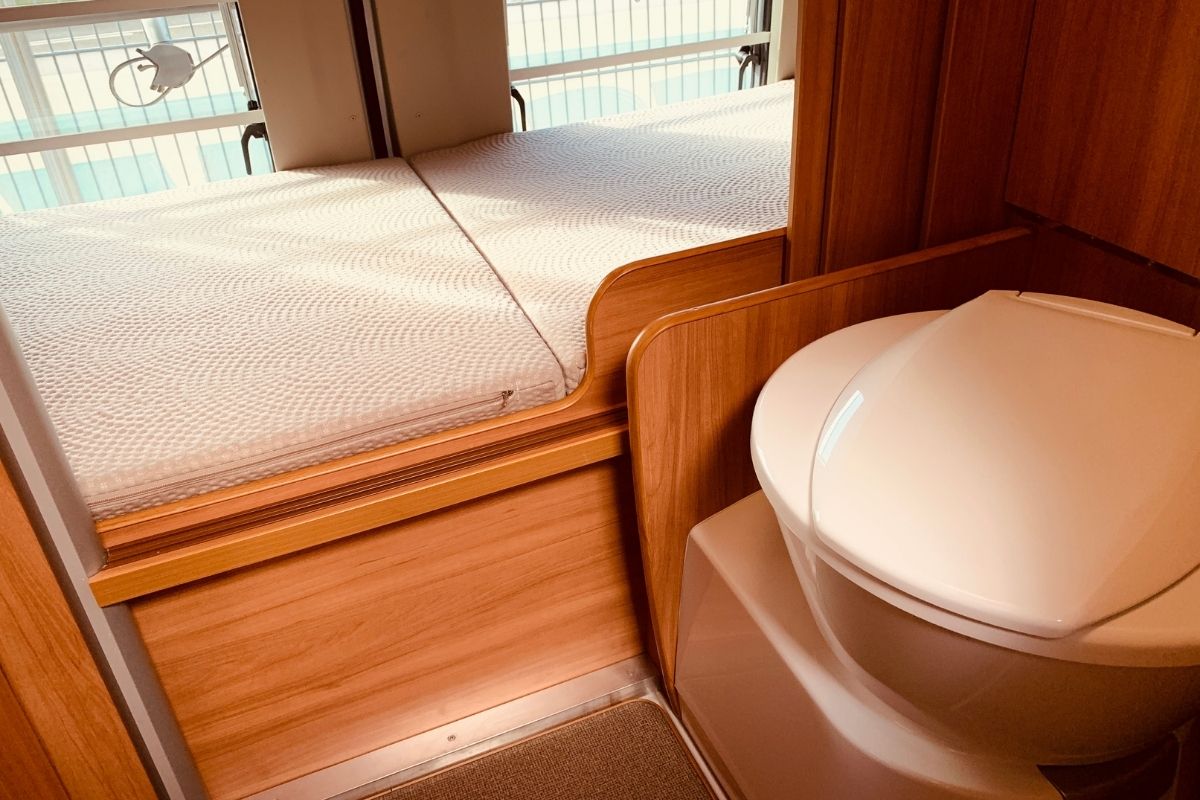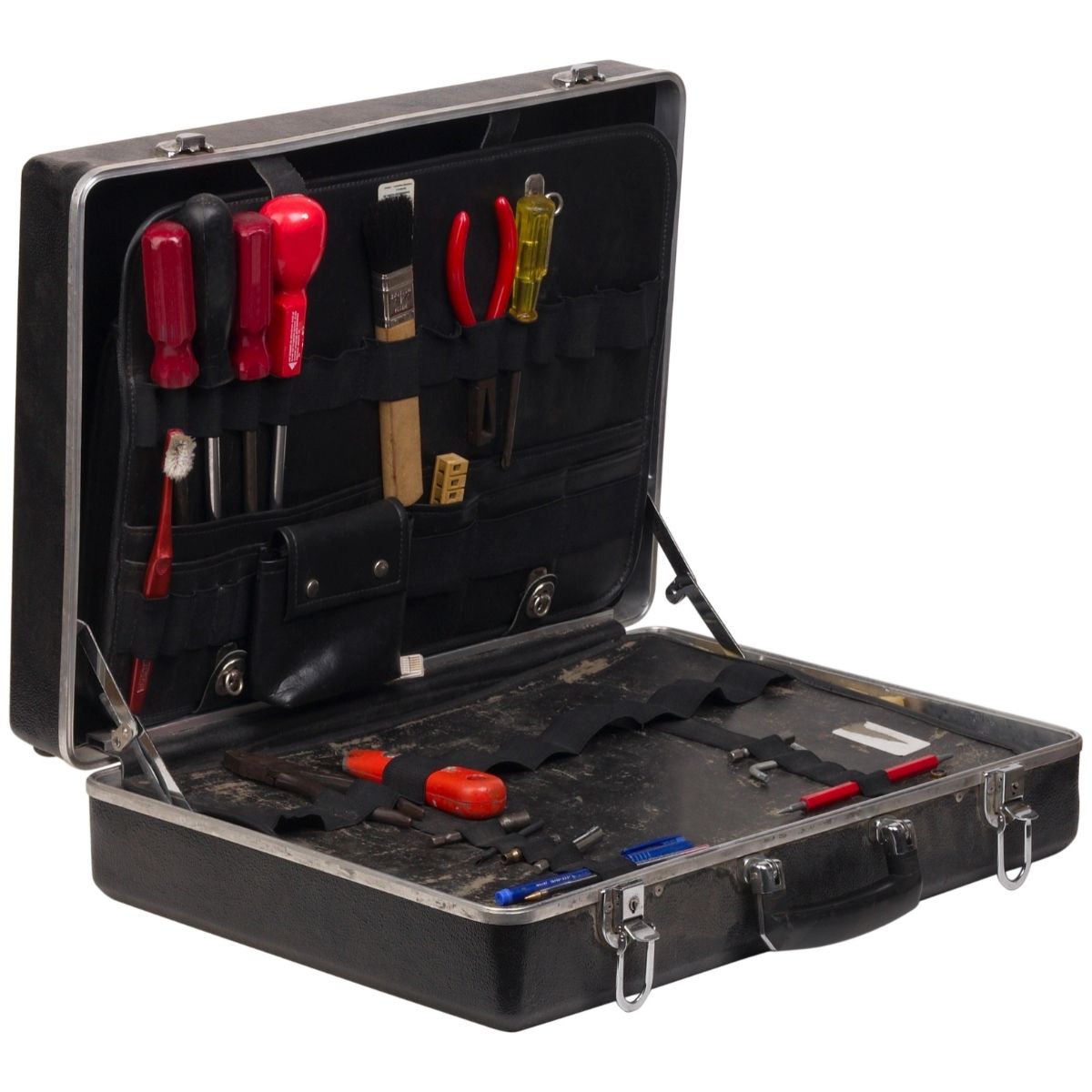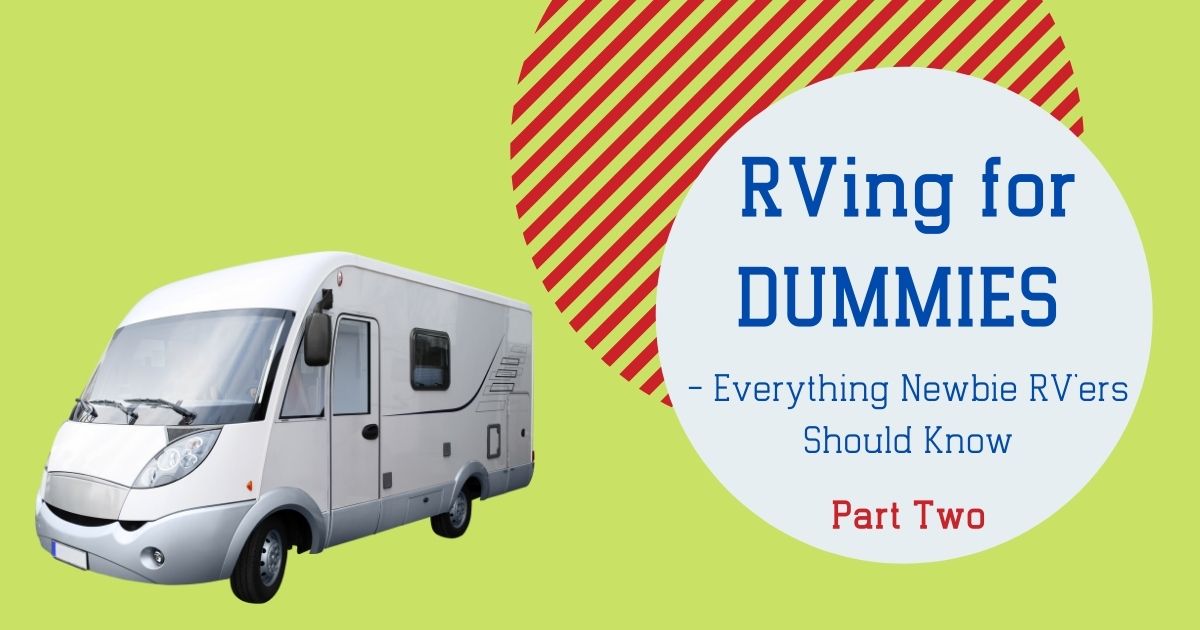RVing has become one of the most hyped lifestyles. However, is RVing for dummies a possibility? If you are new to RVing, you’re definitely in need of all the information you can gather on RV living for beginners.
What is RVing? It’s the art of living in a recreational vehicle (RV) which could be a motor vehicle or trailer designed to be inhabited. This article will explore RV newbies and RV camping tips for beginners.
Staying Organized is of Vital Importance
Working in tiny spaces can be tricky as they get cluttered quite quickly. You need RVing tips for beginners to get started. Even those with the largest RV still have space issues. This will require you to be precise about what you pack for the RV trip.
Here is what you need:
- Belt straps.
- Canvas shoe bag.
- Collapsible storage bins.
- Damage-free hooks.
- Pillowcase.
- Laundry bag.
- Roll clothes to maximize space.
- Small towels.
- Socks to the rescue.
- Tension rod towel rack.
- Trinkets box.
The Different Types of RV Toilets
The topic of human waste deposits is considered a dirty one. No one has to deal with human waste quite intimately as RVers and worse off in travel trailers for beginners. Toilets for RV’s work like standard toilets, but their plumbing and sewer systems are quite different.
The RV toilet drains to a black tank that you will ultimately have to empty. The dumping process isn’t as bad as you may imagine if it’s done in the right way.

There are several RV toilets that I would like for us to look at:
Gravity Flush Toilets
Its appearance is like that of a toilet in your home. The exclusive gravity flush toilets are made of porcelain and others made of plastic.
It has a bowl and a foot pedal that opens up a hatch at the sink’s bottom and rises off the water once you are finished. Due to gravity, the waste falls to the black tank. If you fear the odor of human excrement, the black tank is labeled (Happy Camper) to cater for that and the dumping.
Pros of Gravity Flush Toilets
- No planning is involved since most RVs have installed the flush gravity toilet. So the plumbing is generally all there and ready to go.
Cons of Gravity Flush Toilets
- Water usage is relatively high, which is crucial for boondocking.
- Thanks to gravity, you don’t have to dump your waste using a sewer hose. Instead, your only duty is to find a dumping station once you are ready to.
Composting Toilets
Composite toilets come as a significant improvement to gravity flush toilets.
The bonuses are numerous. They are more environmentally friendly, use no (or very little) water, and go longer between dumping (solid waste, that is).
Composting toilets generally separate liquids from solids, and the combination creates sewage. So with a composting setup, you simply dump the liquids into a public restroom or (if acceptable per local rules) dilute it and sprinkle it on the ground.
Pros of Composting Toilets
- They’re the most environmentally friendly option.
- Because they don’t require water, you can go dry camping longer without dumping.
Cons of Composting Toilets
- Sourcing a composting medium like coconut coir can be difficult, depending on where you are— and don’t forget, you’ll need space to store it.
Cassette Toilets
These toilets have been famous for decades in Europe and have finally made their way across the pond to those of us here in North America.
Cassettes look almost like a suitcase, complete with a handle and wheels for easy rolling. When the tank is full, you simply open up an outdoor bay, pull the “suitcase” out, and wheel it to the nearest dump station or public toilet for emptying.
Pros of Cassette RV Toilets
- They’re effortless to use and dump.
- There’s no need to move your whole RV to the dump station or sewer hole when the tank is full. Instead, you can take the cassette.
Cons of Cassette RV Toilets
- Depending on how you use it, you may get closer to the icky stuff with this toilet than with a gravity flush.
Dry RV Toilets
Dry toilets are fully portable and use NO water to flush. Instead, waste is wrapped into a material that looks like thin aluminum foil, along with a powder that turns your deposit into a gel for easy disposal. When done, you’ll end up with a bag or a packet that you can throw into a garbage bin.
Incinerator Toilets
These RV toilets can have a unit inside your RV that turns your waste into a little pile of ash (less than a tablespoon of ash for every 3-4 uses, to be precise).
Like the dry flush toilets we described above, you’ll need to purchase special toilet bowl liners to use an incinerator toilet so that users can get very pricey very fast if you’re full time, especially with a family, something to keep in mind.
Macerator Toilets
A macerator toilet prevents this issue by pulverizing waste. It works in much the same way as your garbage disposal at home. This means that blockages caused by wads of toilet paper (or other things) won’t happen. During dumping, you’ll also have less risk of clogs in your sewer hose.
Pros of Macerator RV Toilets
- They can pump waste up an incline.
- Smaller sewer hose diameter means less odor while dumping.
Cons of Macerator RV Toilets
- Dumping tanks is slower with a smaller hose.
- Requires more water and electricity than any other type of RV toilet, which means that if you’re interested in camping without hookups, this may not be the toilet for you.
Cat Hole
We can’t fail to mention the good old cat hole toilet. If all the above choices present before you are not a good fit, then the shovel will be all you need.
You will need to dig a hole 6” (15cm) deep and bury all the waste once you are done.
Be careful to keep off streams of water and rivers to avoid contamination of the environment.
How to be RV Prepared and Traveling Safely
Safety should always be first, especially now at the time of the global pandemic. Besides carrying your mask and sanitizer, the following are some travel RV camping tips for beginners.
- Take note of your surroundings. If you feel unsafe, take precautions immediately.
- Be on the lookout for the weather of your destination and your route.
- Check the landscape. Is your path clear where water flows? You want to be found in higher grounds where drainage is best.
- Note the names of any bodies of water near you in case of a flood warning.
- Check the National Weather Service website for updates in the United States.
Must-Have Tools For Your RV Tool Kit
1. Multi-bit screwdriver.
2. Hammer.
3. Duct tape.
4. Flashlight.
5. Pocket knife.
6. Tire pressure gauge.
7. Pliers.
8. Adjustable wrench.
9. Socket and ratchet set.
10. Allen wrenches.
11. Wire cutters.
12. Zip ties.
13. Bubble level.
14. Utility knife.
15. Tape measure.
16. Multimeter.
17. Thread seal tape.
18. Leather work gloves.
19. Bottle jack.
20. Power tools.

Why do you need a checklist? There is always a danger of missing small details that can cost your trip. If you are new to RVing, consider using this RV checklist for beginners to help you:
- Portable solar panel.
- Carpets and mats.
- Exterior storage doors locked.
- Windshield cleaned.
- Rear-view and side-view mirrors cleaned.
- Tire pressure checked and visual inspection (RV and tow car).
- Hoses and cables disconnected.
- Portable electrical management system box stowed.
- Locks and keys are collected and stored.
- Steps are cleared, and the carpet is put away.
- Antenna down.
- Fans on the roof are closed.
- Slides in, locked, and post-it secured.
- Kitchen secured.
- Travel Berkey strapped down.
- Water pump off.
- Water heater off.
- Lights off, including storage bays and closets.
- Generator off.
- Inverter off.
- Bathroom products secured.
- Shower door latched.
- The toilet flushed (and secured if using a portable toilet).
- Drawers pushed in all the way.
- Doors closed.
- Refrigerator items secured.
- Windows closed.
- Dog water bowl level check.
- Fuel check.
- Windshield wipers in working order.
- Leveling jacks retracted.
- Steps retracted when the engine is on.
- Leveling blocks and Hosspads put away.
- Tire chock put away.
- Tow car in tow mode.
- Secure tow-car to RV.
- Check all safety pins.
- Attach brake line to tow-car.
- Check turn signals and brake lights.
- Walkie-talkies are charged and ready to use.
- Water, coffee, and snacks are easily accessible by the passenger.
RV Clubs and Memberships
Why would anyone spend money on club membership? You may ask. Some of these club memberships could be pretty expensive. Other than providing for a beginner a community of RVers, they can save you money on the road if used wisely and easily find the best campers for beginners. Here are some of the club memberships to consider:
Escapees RV Club
Escapees RV Club is an organization that would be pretty beneficial to a beginner. You will benefit from RV advocacy, camping ground discounts, mail forwarding services, among other benefits.
Harvest Hosts
If you’re interested in discovering local farms, museums, and wineries, this is the club for you. It provides its members access to over 1000 locations with overnight RV parking. These locations welcome pets, so you need to worry about where to put your dog.
Costco Wholesale
Costco fuel and propane are one of the cheapest compared to others. This makes the membership quite economical as you will be saving on fuel.
Amazon Prime
A membership to Amazon prime provides money-saving on shipping and saves time. In addition, it offers fast delivery with millions of items on some data delivery. You can sign up for membership annually or after six months.
Elks USA
The members of this club benefit from ample parking at all their nearly 2,000 lodges across the USA. In addition to this, members benefit from discounted travel and health insurance.
How to Get Parcels and Mail While Traveling
This is one challenge to RV traveling. How can you get mail on the road? I have found out a couple of ways which I’m going to share with you:
General Delivery U.S. Postal Service
Use the U.S. Postal Service to offer general delivery for those who need a temporary mailing address to receive mail. Mail sent General Delivery has to be addressed in a specific format, and the zip code may be different from the actual post office.
Also, do not send packages via UPS, FedEx, or any non-USPS service available delivery, as it will most likely be returned as undeliverable.
Send Mail to a Friend or Relative
If you intend to visit a friend or relative on the road, request them if you can use their mail address to receive mail. Use C/O (Care Of) so that the addressee can receive it.
Businesses– Campgrounds/RV Parks/Hotels
This is another excellent way to send and receive mail. Lodging establishment campgrounds, RV parks, and even hotels may receive mail on your behalf. Ask them for permission to use their address and then get the exact address.
There is the option of paying a mail service to receive your mail. They are located throughout the U.S. In this case, you’re not signing up for a permanent address.
Redirect FedEx or UPS Packages for In-store Pickup
You can redirect packages sent by FedEx or UPS to a store location for pick up.
Amazon Lockers
When placing an order on Amazon, it will allow you to collect from an Amazon locker hence avoiding the hassle of figuring out a delivery address.
Choose In-Store Pickup
For easy pickup and returns, choose in-store pickup. Large chain stores such as Walmart are located throughout the United States, making it a convenient option for ordering items online for in-store pickup.
H8 Why RV Health Insurance is Key
No one ever wants to get sick and worse on the road. But you must take caution and prepare for any eventuality. For an RV beginner, getting insurance can be a daunting task.
There are several options for health insurance available for a beginner. Most employed Americans receive health insurance as a benefit from the employer. If they work on the road, then it’s covered.
H9 Does Health Insurance for RVers Exist?
If you are new to RVing and wondering if RVer’s health insurance exists, yes, it does. It is even possible to find affordable healthcare. There are several options for those searching for health insurance.
As a beginner, it may be hectic to find a suitable insurance plan for you. Register with the RVer Insurance Exchange, and they will provide you with health insurance plans available.
Telemedicine
This is another excellent alternative for when you don’t need to see a physician physically.
Medicare
This is a federal health insurance program available for 65 years or above. Those who receive Social Security Disability Insurance also qualify. You can check the Medicare site for the details you need.
Self-Employed Group Coverage
Those who are self-employed but have an income too high to qualify for ACA subsidy should consider Self-Employed Group Plans.
Health Sharing
Health Sharing services are faith-based, where RVers look for sponsorship by a church to join them. It is another excellent option.
Supplemental Fixed Indemnity Plan
This one is also not technically insurance. You will be reimbursed per occurrence. It’s often used to supplement other types of insurance, especially if you have catastrophic coverage only. The upper side of it is that its cost is low.

Is the RV Lifestyle Expensive?
RV lifestyle cost is unique to each individual, family, or couple. To some, it could be pretty inexpensive compared to their budgets. I look at some of the factors that significantly contribute to the cost of RV living:
- Type of RV.
- Average miles driven.
- Vehicle’s fuel economy.
- Travel style (budget-friendly vs. luxury).
- The number of people in your RV family.
Full-Time RVing vs. Part-Time RVing
Full-time RV living is excellent, but not for everyone. According to a 2019 survey done by Escapees RV Club, they found out that 48% of their respondents lived in their RV full-time. The rest used their RVs part-time and on weekends or vacations.
RVs are perfect for part-time, especially now during this time of the global pandemic. RVing part-time can be a great way to relish vacations safely while minimizing close contact with others. Some of the reasons why it’s better to go RVing part-time include:
- You can enjoy a vacation anytime. It provides a delightful and convenient way to achieve your vacation goals.
- You can share your journey with friends and family. This will be significantly less costly if they chip in to settle some bills.
- Explore near and far. RVing provides the opportunity to discover your area and check out the landmarks.
- Last-minute RVing is made possible. RV gives you ready-made transportation and lodging all in one— a vacation-ready to roll out of your driveway (or storage space). Just pack food, clothes, and other essentials, fill up your water and gas, and you’re all set to be on your way.
- Wear and tear on RV is significantly reduced since you’re not always using it without needing it repaired often.
- You can upgrade your camping. RVs can help you enjoy the outdoors, like setting up a tent, doing all your cooking over a campfire, and washing dishes in the woods adventures with a little (or a lot) of added convenience.
- Enjoy being a digital nomad. If your job allows you to work remotely, an RV can help you shake up your routine. Take a walk through the forest as you work, or take in the mountain view. Plan your camping around the time you have fewer online meetings. In case you worry about connectivity, get yourself a cell phone booster.
- Avoid minimizing your possessions unless you want to. Part-time RVing lets you park without fear of overdoing it. Hobby items like exercise equipment can easily be considered if you’re doing part-time RVing. It’s easy to plan for them occasionally as opposed to full-time.
Other RV-Related Considerations to Take
Here is the RV camping accessories list of essentials. As a beginner RVer, you will find this list quite helpful.
1. General RV camping accessories (technology): They include the following- RV-specific GPS, WiFi booster & repeater, cell phone signal booster, electrical management system (EMS), portable solar panels. Tire pressure monitoring system (TPMS).
2. General RV camping accessories (outside the RV): Roof vent cover, leveling and jack pads, and camping stove.
3. General RV camping accessories (inside the RV): They include- handheld vacuum, shower shut-off valve, multi-cooker, Berkey water purifier, Scrubba clothes washing bag, RV holding tank treatment.
4. General RV camping accessories (miscellaneous): Includes- binoculars.
5. Motorhome-specific RV accessories: Spare tire carrier and RV level.
6. Towable-specific RV accessories: They include- a weight-distribution hitch.
Our Take Home Message
There is a world of knowledge out here on what to know about RVs. RVing is so much fun, and I greatly encourage you to take it up.
As you go on with it, you’ll get to learn so much more. And within no time, you will be an expert in this area! I wish you all the bliss that awaits you in RVing!
